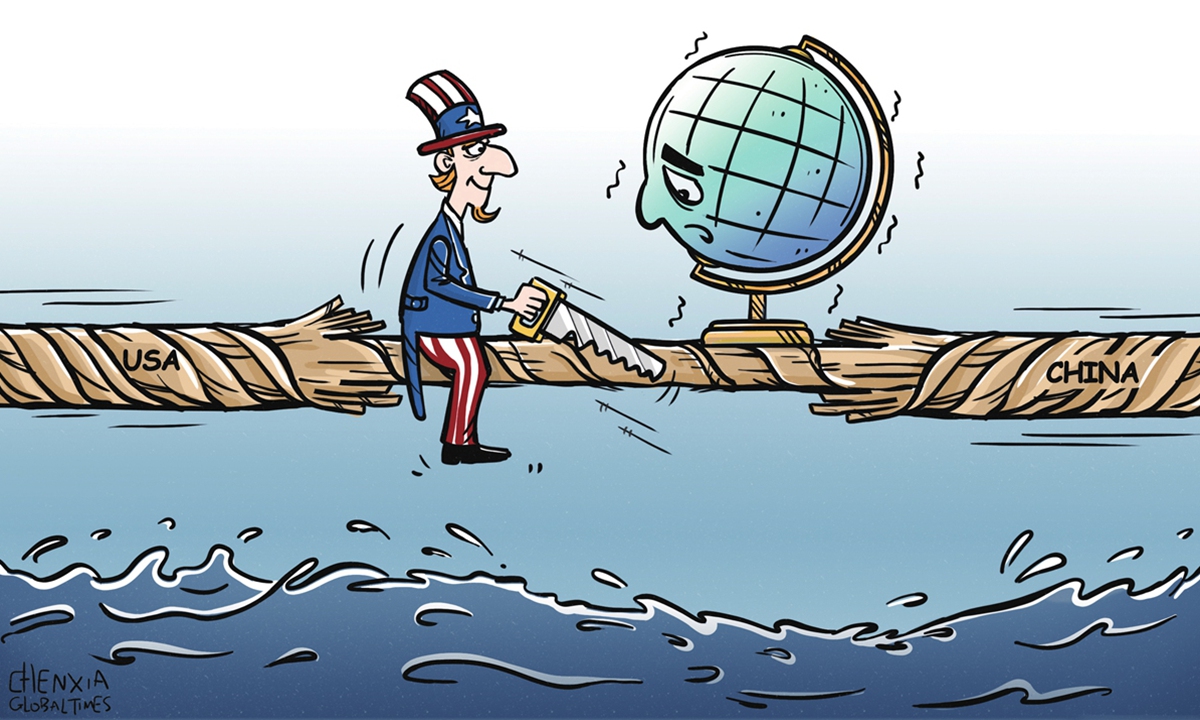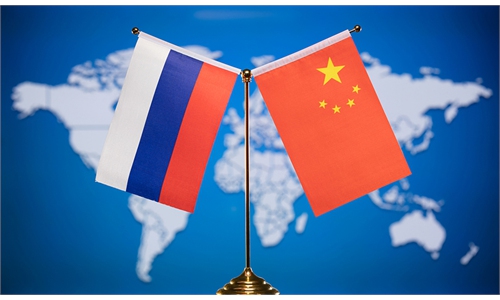OPINION / GLOBAL MINDS
US’ containment fails to stop China making more friends

Illustration: Chen Xia/GT
As the G7 held the summit over the weekend, there were voices within China that claimed "China has no friends in developed countries" and that "China should reflect on why it is so isolated." I would like to take the time to "reflect" on this.The biggest change in China's diplomatic situation is that the US has turned against us, which to a certain extent has driven and influenced the attitudes of some Western countries toward China. However, one cannot simply say that Western countries "are no longer friends of China." With so many countries in Europe, most of their relations with China are normal. When French President Emmanuel Macron visited China in April, he wrote "Long live the friendship between China and France" on social media. Aren't China and France friends? Are China's relations with countries like Spain not normal?
China has grown stronger, and it has competed with Western countries to varying degrees. This is a new factor in the relations of those countries with China. Former German ambassador to China, Michael Clauss, once invited me to the embassy. He told me that China can produce everything, so what should Germany do, and what should Europe do? I can feel that that is his biggest anxiety and that of Germany. It is impossible for China to halt its own development in order to please Western countries. What we should do is to share our own development and new opportunities with Western countries.
The US wants to sustain its hegemony, and China has responded rationally and moderately. We do not compete with the US for dominance in world affairs, let alone compete with it for hegemony. What we have done is not accept the hegemonic interference of the US in China's internal affairs, and resolutely reject its containment of China's development. Therefore, China-US relations are tense, but the actual conflict is much smaller than that of the US-Soviet Cold War period.
To be honest, the US is a panicking a little. They are worried that China's semiconductor industry will continue to make progress. In the end, American companies will lose all their income in the Chinese market. So they are thinking about how to not only block the export of high-end chips to China, but also cause disturbances to disrupt China's determination to self-innovate.
Japan is a strategic vassal of the US, and is also jealous of China's rapid development and anxious that it is becoming more and more inferior to China. China is still Japan's largest trading partner. China and Japan remain are at odds with each other and speak harsh words, but neither has any strategic plans to be full enemies of each other.
Britain, Australia, and Canada are all members of the Five Eyes alliance and Anglo-Saxon countries. They are deeply influenced by US policy toward China, but none is willing to completely destroy their relationship with China. They are all following the US while retaining room for their own constant calculations regarding ties with China.
South Korea has Americanophile sentiments and seeks protection from the US because of tensions on the Korean Peninsula. But China for it means huge realistic interests and an important weight on its national security. Seoul is not destined to go too far away from Beijing, and its policy toward China will waver with the change of political parties.
The "so many" countries mentioned above are actually a very small part of the world. Beyond them, a large number of developing countries have friendly relations with China, and 151 countries have joined the Belt and Road Initiative, accounting for three-quarters of the total number of countries in the world.
China is proud of the fact that we are a big country with global interests, but we do not have a real "enemy." The US has several enemy countries, such as Iran, Syria and North Korea. Russia is now also one of them. I'm afraid the number of countries the US has sanctioned is too many to count.
China has become the world's largest trading nation, mutual bushiness and investment are the best reflection of the bottom temperature of relations between countries, and are the most affordable part of national relations.
In this sense, China's foreign relations have been generally successful and sound in the face of the US shift to a containment strategy against China and the impact of the war in Ukraine. We have managed to balance the major contradictions, developed or stabilized our relations with neighbors and other influential countries, and vigorously expanded our relations with the world's vast developing countries.
Some people are very uncomfortable with the strained relationship with the US, as if the US and its hardcore allies are the world. Their concerns are understandable. But the illusion that "China has only poor friends and the developed countries have become China's enemies", based on their lack of self-confidence, needs to be fundamentally corrected. Since China has become stronger, it is inevitably competing with the US in today's international game. However, China has managed the China-US conflict to the maximum extent, its international relations have been consolidated in a continuous process of adaptation, and its initiative in addressing the changes in the international situation is advancing step by step.
The author is a commentator with the Global Times. opinion@globaltimes.com.cn



